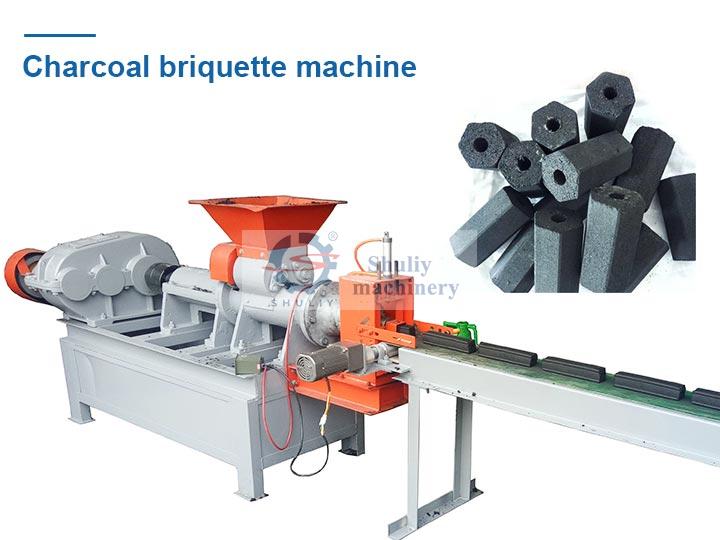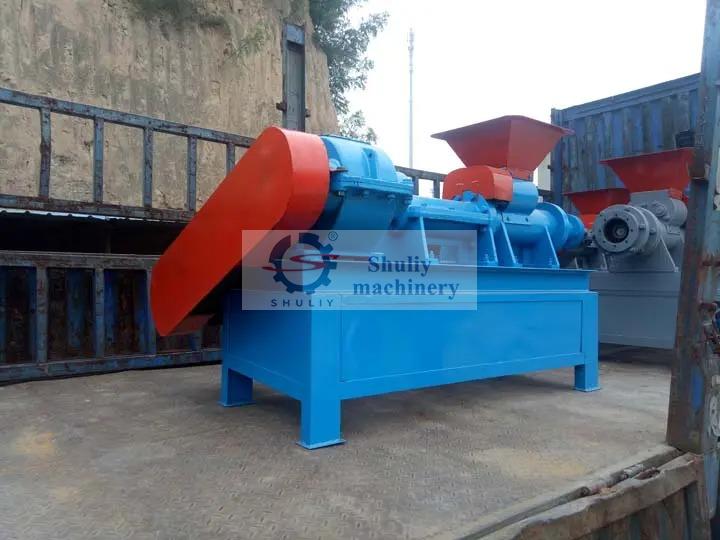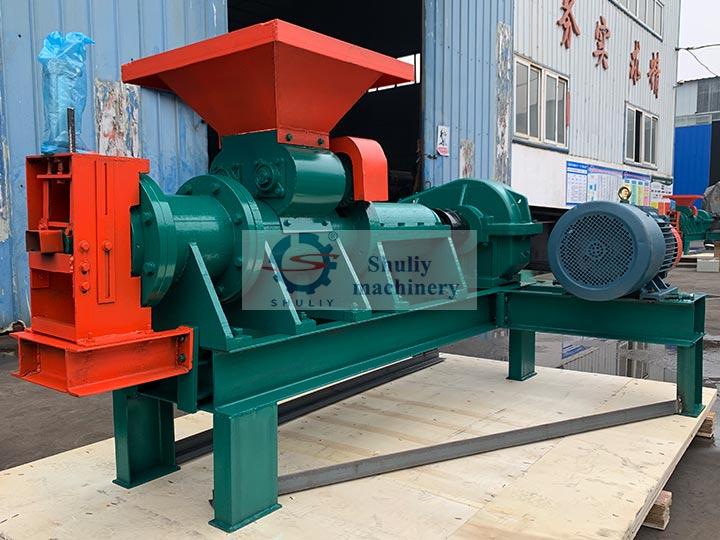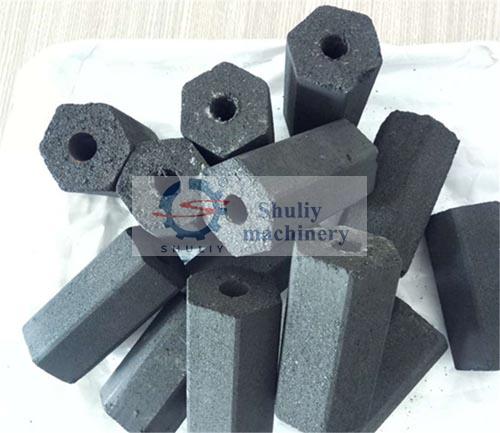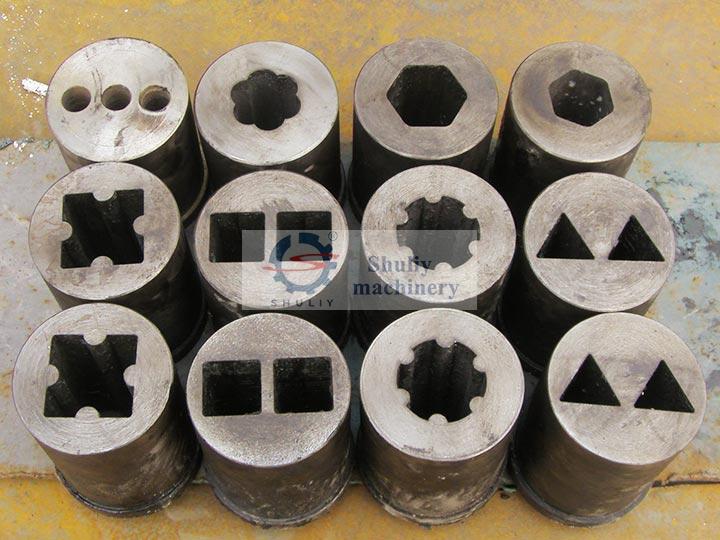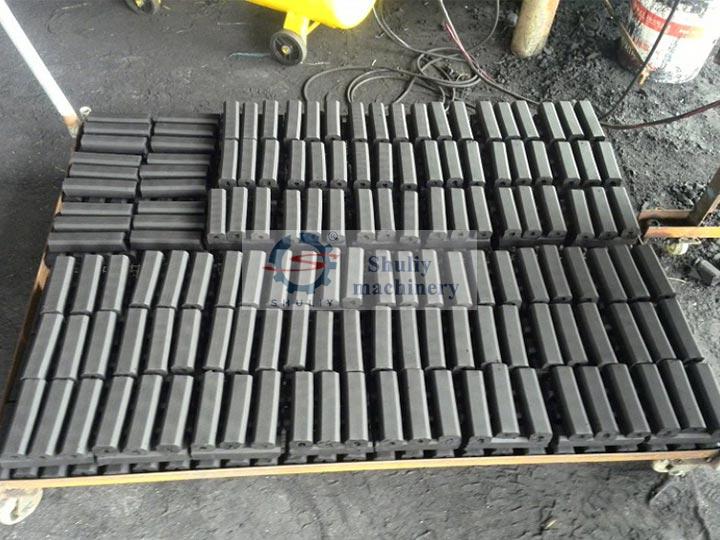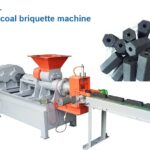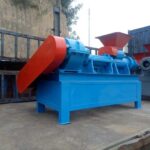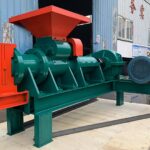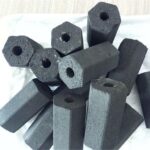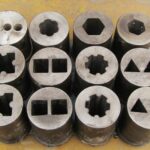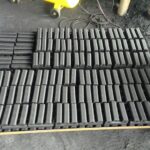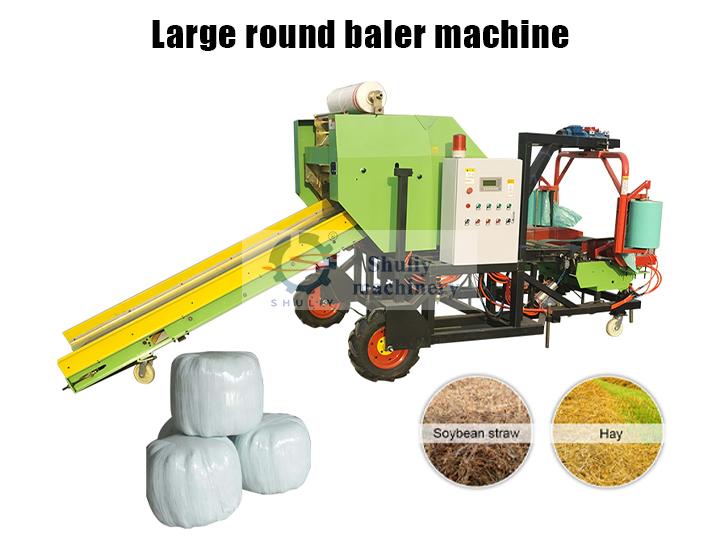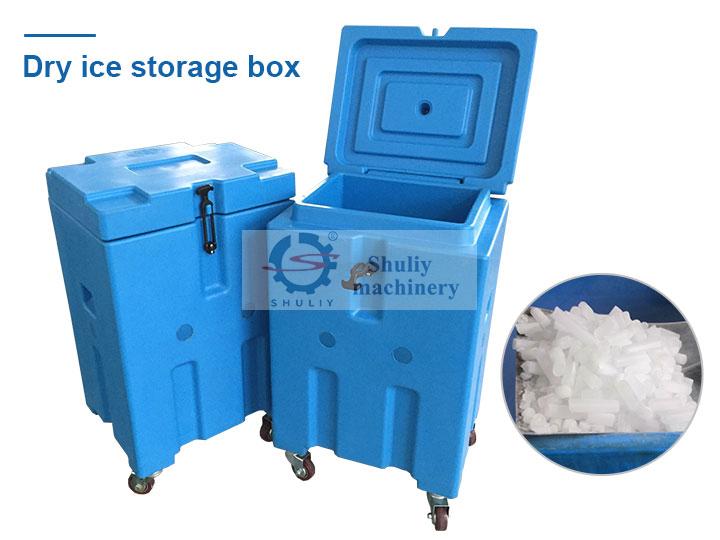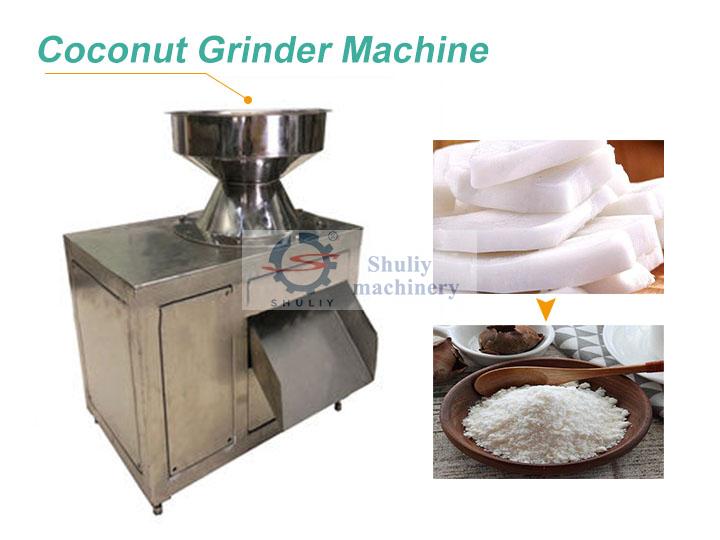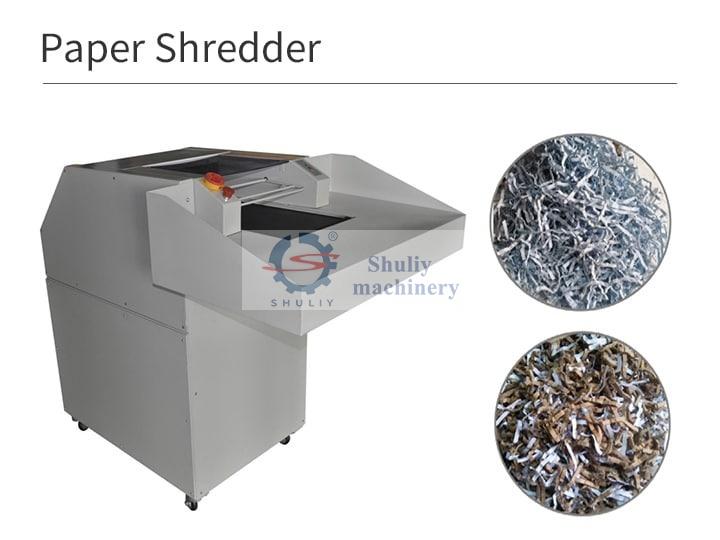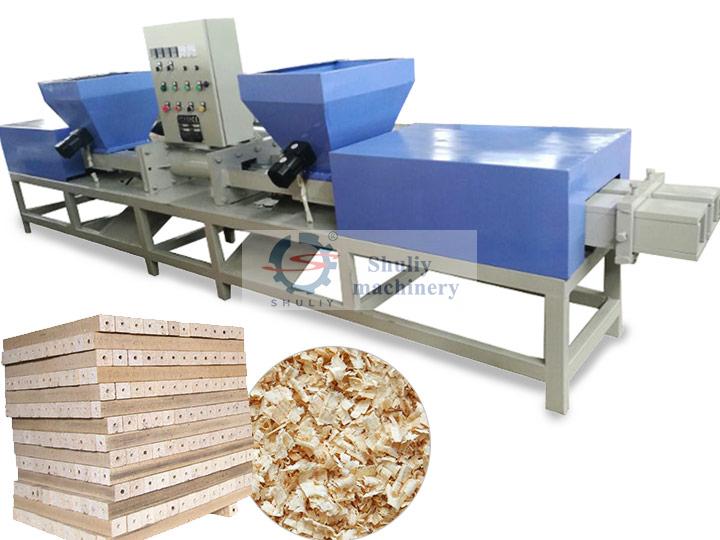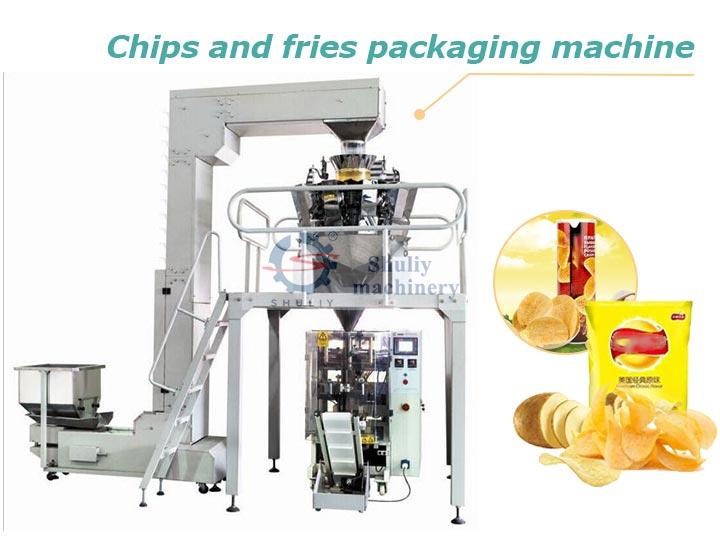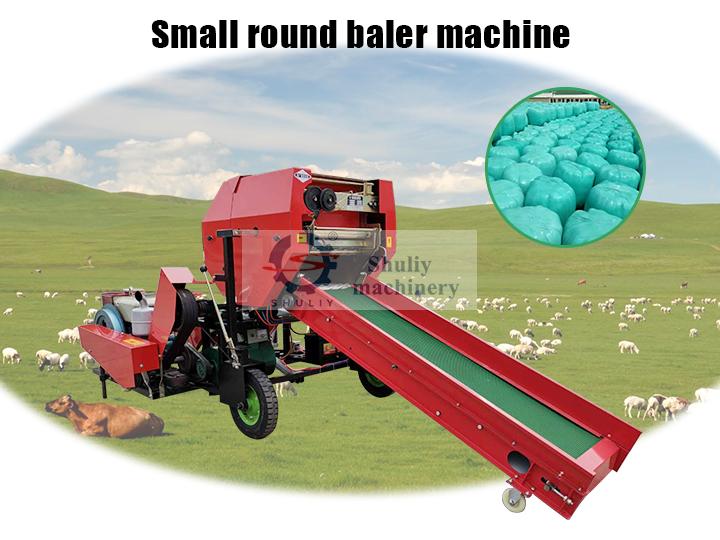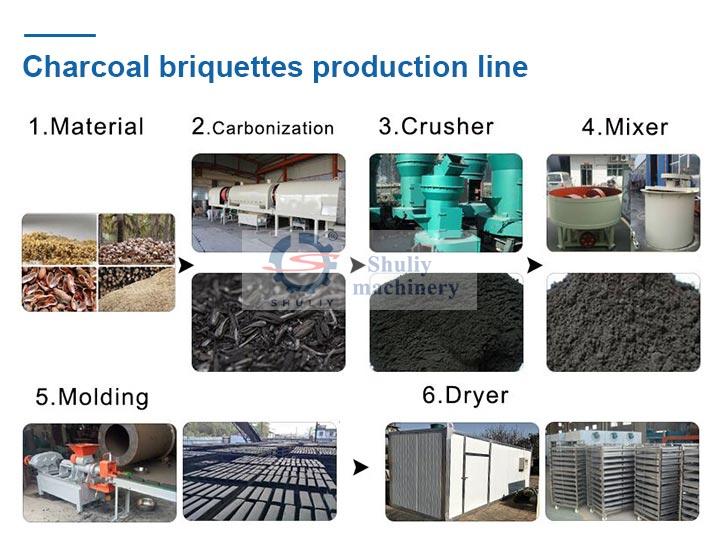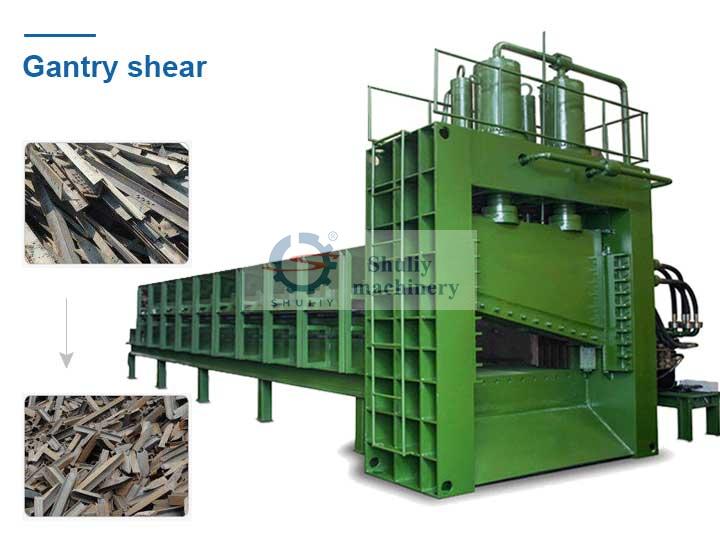Features at a Glance
In today’s competitive market, maximizing resource value is paramount. Our industrial charcoal briquette machine is engineered to do precisely that, transforming low-cost powders like charcoal, coal, and biomass waste into high-density, high-value briquettes. This robust charcoal extruder is the cornerstone of a profitable production line, designed for continuous operation, exceptional durability, and maximum return on investment.
Whether you aim to produce premium BBQ charcoal, uniform shisha charcoal, or industrial fuel rods, our machine provides the power and precision you need to lead the market.
Why Choose Our Screw Type Briquette Machine? It’s a Matter of Engineering.
While many machines look similar, performance is determined by engineering. We focus on the three areas that directly impact your profitability: durability, efficiency, and versatility.
1. Engineered for Unmatched Durability
Downtime is lost revenue. The core of our charcoal extruder machine—the screw propeller (reamer) and forming mold—is forged from a proprietary, high-wear-resisting casting alloy.
- Benefit: This critical component lasts 3 to 4 times longer than those made from standard steel, drastically reducing replacement frequency, maintenance costs, and operational downtime.
2. Intelligent Overload Protection
Our machines feature a flexible belt-drive transmission connecting the motor to the reducer. This isn’t just a simple connection; it’s a built-in safety mechanism.
- Benefit: If a temporary overload or jam occurs, the belt will slip, absorbing the impact and protecting your primary motor and gearbox from catastrophic damage. This simple feature safeguards your investment and ensures operational reliability.
3. A Versatile Production Hub
Market demands change. With our machine, you can adapt instantly. By simply swapping the extrusion mold, you can pivot your production to whatever is most profitable.
- Benefit: Produce hexagonal BBQ briquettes, square shisha cubes, or round industrial rods with a single machine. This “one-machine, multiple-products” capability maximizes your market reach and ROI.
Find Your Perfect Model: Technical Specifications
We offer a complete range of models to match your specific output requirements, from start-up operations to large-scale industrial plants.
| Model | Motor Power (kW) | Output Capacity (t/h) | Machine Weight (t) | Rotation Speed (rpm) | Dimensions (L×W×H mm) |
|---|---|---|---|---|---|
| SL-140 | 11 | 1 – 2 | 1.2 | 60 | 1900×1100×1170 |
| SL-180 | 22 | 2 – 3 | 2.5 | 60 | 2210×1370×1440 |
| SL-300 | 90 | 5 – 6 | 4.5 | 132 | 3605×1025×955 |
| SL-450 | 220 | 9 – 12 | 7.5 | 132 | 5130×1520×1480 |
Note: The higher rotation speed in the SL-300 and SL-450 models is a result of advanced gearbox and screw design, enabling significantly higher throughput for industrial-scale production.
From Raw Material to Premium Product: Versatile Applications
Our industrial briquette machine is a proven performer across a wide range of raw materials and final products, making it a highly sought-after asset in multiple industries.
- Raw Materials: Effectively processes fine powders from coconut shell, sawdust, rice husk, wood waste, coal dust, lignite, anthracite, and more.
- High-Demand Products:
- Shisha/Hookah Charcoal: Create dense, perfectly formed cubes that are in high demand globally.
- BBQ Charcoal: Produce popular hexagonal or square briquettes with a central hole for uniform, long-lasting combustion.
- Industrial Fuel: Manufacture high-calorific value coal rods for use in boilers, smelters, and chemical plants.
More Than a Machine: A Complete Briquetting Solution
A successful operation depends on a seamless workflow. We are not just a machine supplier; we are your production partner. We provide expert guidance on setting up a complete charcoal briquette production line, which typically includes:
- Crusher: To process raw charcoal or coal into a suitable size.
- Wheel Grinder Mixer: To uniformly blend the powder with a binder and water, which is critical for strong briquettes.
- Briquette Machine: The core of the line, to extrude the mixed material.
- Briquette Cutter: To ensure uniform length and a professional final product.
- Drying System: To properly cure the briquettes for optimal hardness and performance.
We have successfully deployed these solutions for clients worldwide, including in high-growth markets like the Philippines and Indonesia.
Partner with the Experts for Your Briquetting Success
Investing in a charcoal briquette machine is a significant business decision. Don’t settle for just a low price; invest in performance, reliability, and expert support that will generate profit for years to come. We are the manufacturer that understands the science behind a perfect briquette.
Contact us today for a personalized quote and a free consultation on your production needs. Let’s build your profitable future, together.
FAQ
-
Your marketing materials mention “high wear-resisting alloy” for the screw propeller and mold. This sounds good, but what does it actually mean? What is the specific material, and what is the realistic operational lifespan in terms of tons produced before I need to replace these core components?
That’s an excellent and critical question, as wear parts are the primary operational cost for any extrusion machine.
Our screw propellers and molds are not made from standard hardened steel. They are investment-cast from a high-chromium alloy (Cr12MoV), which is then subjected to a specialized heat treatment process. This results in a Rockwell hardness of over HRC60.
Here’s what that means for you in practical terms:
Lifespan: While standard steel parts might need replacement after processing 50-80 tons of material, our high-chromium components are engineered to reliably process 300-400 tons of charcoal powder before requiring replacement. The exact lifespan will vary slightly with the abrasiveness of your specific raw material (e.g., high-silica content biomass may be more abrasive).
Performance: This superior hardness doesn’t just mean longer life; it ensures consistent briquette density and shape over the entire operational cycle.
Conclusion: You are investing in significantly fewer shutdowns for maintenance and a lower cost-per-ton produced, directly boosting your profitability. We also keep a full inventory of these replacement parts for immediate shipment to minimize your downtime when the time eventually comes. -
The technical data sheet lists output capacities like “2-3 t/h” for the SL-180 model. How realistic is this number? What specific conditions (material type, moisture, operator skill) are required to consistently achieve this maximum rated output?
This is a crucial point, and we believe in being transparent. The “2-3 tons per hour” rating is the machine’s mechanical capacity under ideal conditions. Achieving it consistently depends on optimizing your production workflow.
The three most critical factors are:
Raw Material Preparation: The powder must be of a consistent, fine mesh (ideally 80-100 mesh). Larger, inconsistent particles will reduce efficiency.
Moisture Content: This is the single most important variable. For most charcoal powders, the optimal moisture content for extrusion is between 25-30%.Too dry (<20%): The material will cause excessive friction and heat, reducing output and accelerating wear on the screw.
Too wet (>35%): The briquettes will be soft, difficult to handle, and may not form properly, leading to blockages.
Binder Mixing: The binder (like corn or cassava starch) must be mixed absolutely uniformly with the powder and water. Our recommendation is to use a wheel grinder mixer for this task, as it ensures a homogenous mixture that flows smoothly into the extruder.
To help you succeed, we offer a valuable service: you can send us a 15-20 kg sample of your raw material, and we will conduct a free test run. We will determine the optimal moisture and binder ratio for your specific material and provide you with a video of the test and the resulting briquettes, giving you a precise operational baseline before you even purchase. -
We want to produce high-density hexagonal BBQ briquettes that don’t crumble during packaging and transport. How does your machine guarantee the final product’s quality and density, beyond just its shape?
You’ve identified the difference between a machine that simply makes briquettes and one that manufactures a premium product. The final quality is a partnership between the machine’s power and the material’s preparation.
Here is how we ensure high-density, durable briquettes:
Optimized Screw-to-Barrel Clearance: The clearance between our screw propeller and the barrel wall is precision-engineered to be extremely tight. This minimizes material backflow and maximizes forward pressure, creating immense compaction force that results in very high briquette density.
Tapered Barrel Design: The machine’s barrel is slightly tapered, gradually increasing pressure as the material moves toward the mold. This progressive compression squeezes out air pockets and ensures a solid, void-free internal structure.
Process Control Guidance: The machine provides the pressure, but the “glue” that holds the briquette together is the correctly activated binder. We provide detailed guidance on binder selection (e.g., cassava starch for its excellent binding properties) and the crucial step of adding the right amount of water to create a paste-like consistency. A strong briquette is born in the mixer; our machine gives it its final, dense form.
By combining our machine’s immense and consistent pressure with proper material preparation, you will produce briquettes that are structurally sound and can easily withstand the rigors of handling and shipping. -
I’ve seen hydraulic briquette presses as well. Why should I choose your screw extruder over a hydraulic press for producing BBQ or shisha charcoal?
That’s an insightful question, and the answer depends entirely on your production goals. Both technologies have their place.
Hydraulic Presses: These are excellent for creating very high-density, smaller tablets or cubes under immense static pressure. They are often favored for high-end, perfectly uniform shisha/hookah charcoal tablets. However, their primary drawback is that they are batch-process machines, meaning their production cycle is start-and-stop, resulting in a significantly lower overall output (kg per hour).
Screw Extruders (Our Machine): Our machine is a continuous-process machine. Once it’s running, it produces a continuous rod of briquettes at a very high speed. This makes it vastly more efficient for producing larger quantities of BBQ charcoal or fuel rods.
Key Advantage for BBQ Charcoal: The extrusion process naturally allows for creating shapes with a central hole (like hexagonal or square with a hole), which is highly desirable for BBQ charcoal as it improves airflow and ensures more even burning. This is difficult or impossible to achieve with a standard hydraulic press.

